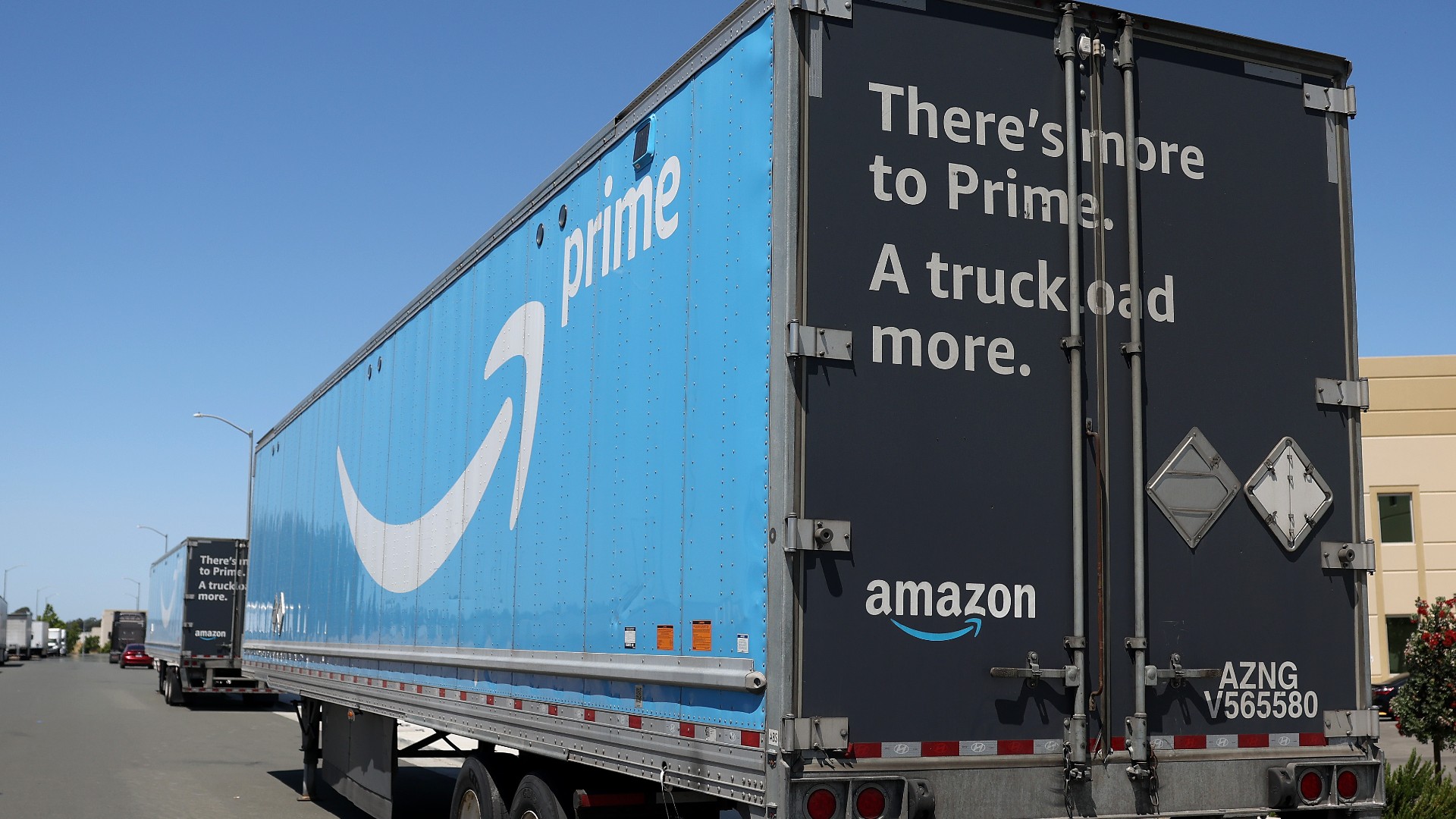Amazon vs. the FTC: behind the monumental antitrust showdown
The Federal Trade Commission is taking on the e-commerce giant for allegedly building a monopoly in the online market


A free daily email with the biggest news stories of the day – and the best features from TheWeek.com
You are now subscribed
Your newsletter sign-up was successful
In September, the U.S. Federal Trade Commission kicked off a long-awaited antitrust battle against e-commerce giant Amazon, filing a lawsuit alongside a bipartisan group of state attorneys general. Recently, government lawyers unsealed large portions of the case that were initially redacted, revealing key evidence the agency is using against the company.
Why is Amazon being sued?
The FTC is accusing Amazon of violating antitrust laws by "raising prices for customers across the internet because of a requirement that sellers offer their goods at their lowest price on Amazon.com," The Wall Street Journal explained. "Amazon is a monopolist," the agency alleged in the filing. "It exploits its monopolies" to enrich itself while harming its customers, "both the tens of millions of American households who regularly shop on Amazon's online superstore and the hundreds of thousands of businesses who rely on Amazon to reach them."
Amazon plans on fighting the "misguided lawsuit," which, if successful, would force it to "engage in practices that actually harm consumers and the many businesses that sell in our store," Amazon general counsel David Zapolsky wrote in a response to the FTC's complaint. He said those practices would lead to higher prices and less reliable shipping.
The Week
Escape your echo chamber. Get the facts behind the news, plus analysis from multiple perspectives.

Sign up for The Week's Free Newsletters
From our morning news briefing to a weekly Good News Newsletter, get the best of The Week delivered directly to your inbox.
From our morning news briefing to a weekly Good News Newsletter, get the best of The Week delivered directly to your inbox.
But those prices are already inflated, since "Amazon has actually quietly been hiking prices for consumers in ways that are not always clearly visible," Lina Khan, the FTC chair, told David Remnick on The New Yorker's podcast The Political Scene. Amazon's hidden price hikes "can result in consumers paying billions of dollars more than they would if there was actually competition in the market." Khan has had her sights set on the e-commerce giant since before she graduated from law school, where she published "an influential paper about applying antitrust law to Amazon," The New Yorker noted. Not only do consumers pay more, Khan told Remnick, but the company recognizes that its "merchants live in constant fear of Amazon's punishments and punitive tactics."
What do the unredacted portions of the lawsuit reveal?
One bombshell allegation in the recently unredacted sections shows that Amazon used a secret algorithm, "Project Nessie," to inflate prices and net $1 billion in excess profits, The Hill reported. Between 2015 and 2019, the company used Project Nessie to raise prices on thousands of products it predicted its smaller online competitors would price-match, allowing Amazon to reap the excess profits without undue risk that consumers could find lower-cost versions elsewhere, the FTC said. Once the higher prices spread from Amazon to rival retailers, Amazon would keep them elevated.
"The sole purpose of Project Nessie was to further hike consumer prices by manipulating other online stores into raising their prices," the agency said in its lawsuit. The FTC concluded that between 2016 and 2018, the algorithm raked in $1 billion in excess profits for Amazon, "and since this figure does not account for the excess amounts that shoppers paid at other online stores because of Project Nessie, the overall amount that American shoppers have overpaid is likely far higher."
Amazon stopped using Project Nessie in 2019 "in the face of regulatory scrutiny," The Hill reported. Still, it considered experimenting to improve the algorithm's effectiveness in 2020 and 2021, with a goal of turning it back on. In early 2022, the lawsuit said, one executive asked about turning "our old friend Nessie" back on to boost profit for the company's retail arm. "There are no technical barriers to Amazon resurrecting — or even expanding — its use of Project Nessie, just as it repeatedly has in the past," the FTC warned.
A free daily email with the biggest news stories of the day – and the best features from TheWeek.com
Amazon spokesperson Tim Doyle said the FTC filing "grossly mischaracterizes" Project Nessie, describing it instead as a price-stabilization tool that was "scrapped" because it "didn't work as intended."
In addition to the secret algorithm, the FTC accused Amazon of purposefully raising the number of irrelevant ads on its site to boost profits, and intentionally destroying "two years' worth of encrypted internal text messages to thwart the FTC's investigation," the Journal reported. In internal documents cited in the complaint, Amazon executives acknowledged the "punitive aspect" of policies that force sellers to post their lowest prices on Amazon or face disciplinary tactics like burying their products so far down in the search results that they become effectively invisible. Many sellers "live in constant fear" of being penalized with these tactics, Amazon executives reportedly admitted.
Theara Coleman has worked as a staff writer at The Week since September 2022. She frequently writes about technology, education, literature and general news. She was previously a contributing writer and assistant editor at Honeysuckle Magazine, where she covered racial politics and cannabis industry news.
